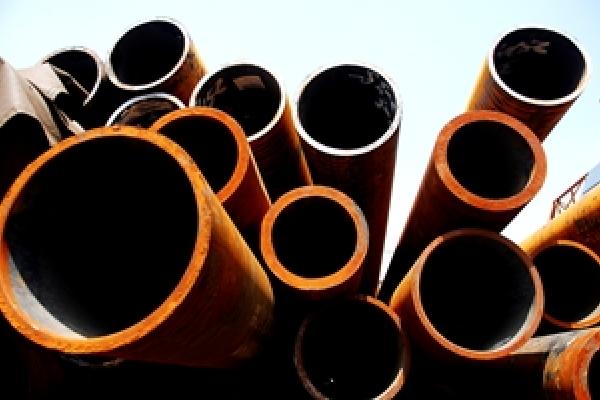
Malcolm Shelmerdine
Published: December 01, 2012

For obvious reasons, shippers want clean bills of lading. Indeed, more often than not they are needed so that the shipper of a cargo will be paid under their sale contract with their buyer. In the case of steel cargoes, unless specially treated, there is always the possibility that there will be some visible rust on the surface. Surface oxidation can range from superficial to serious; if the former, it may not be necessary to clause the bills of lading but, in the case of the latter, clausing will be necessary. However, the problem faced by the reasonably competent and observant master is to decide when rusting is no longer superficial and, then, how accurately to describe the extent of the rusting.
In these circumstances the master of a vessel will often come under pressure to issue clean bills or to accept a letter of indemnity in exchange for agreeing to issue clean bills of lading. In either case, if bills of lading are issued that are known by the Member or master to contain an incorrect description of the cargo or its condition, any consequent liabilities are not covered by the Club (unless otherwise determined in accordance with their discretion by the Club’s Directors).
A further means of seeking to avoid these difficulties so that clean bills of lading are issued, particularly in the carriage of steel cargoes, is the Retla clause. Because the use of such clauses can carry with it Club cover risks if a members is unable to defend a cargo claim because the bill of lading should have been claused, and thus there can be no certainty as to cover, the question that arises in these circumstances is what reliance can be placed on a Retla clause? In particular, in cases where the rust, when removed, is likely to reveal uneven pitting to the surface of the steel?
Retla clauses work on the premise that there is no representation that the goods shipped are in an “apparent good order and condition” and that if the shipper would prefer a bill of lading that describes the apparent order and condition of the cargo a bill of lading will be issued that (i) does not include a Retla clause and (ii) is in conformity with any reservations as to the cargo’s condition set out in the mate’s receipts.
However, Retla clauses have attracted widespread criticism. They have been justified on the basis that the shipper can demand a bill of lading without the clause but in practice, and for obvious reasons, shippers want clean bills of lading. Therefore, it is questionable how often bills of lading without the clause are sought by shippers if that bill of lading would be claused. As such, they are, at worst, a means by which bills of lading that do not represent the cargo’s condition can be issued. To that extent the bills (i) misrepresent the true facts and (ii) for this reason, any potential liability in that respect is unlikely to be covered as of right under Club Rules.
In 1970 a Retla clause was upheld by U.S. the 9th Circuit. In that case (Tokio Marine v Retla Shipping Co (1970) 2 LLR) the court concluded that there was no representation by the carrier that a cargo of steel pipes were free of rust when received for shipment. The same issue has now come before the English courts (The “Saga Explorer” (Breffka & Hehnke GmbH & Co KG and Others v Navire Shipping Co Ltd and Others [ 2012 ] EWHC 3124 (Comm)), but in this case the carrier was unable to rely on the Retla clause.
The survey noted that the "damage/exception" had been acknowledged by the master and recommended that the mate's receipt and bills of lading should be claused accordingly.
The vessel had loaded a cargo of steel pipes at Ulsan for discharge on the West Coast of the U.S.. The mate's receipt included a Retla Clause and also stated "condition of cargo as per survey report". The load port survey recorded the pipes as "partly rust stained" (and variations of that phrase), that the "damage/exception" had been acknowledged by the master, and recommended that the mate's receipt and bills of lading should be claused accordingly. The relevant contracts of carriage were 13 bills of lading but these were issued by owners stating that the pipes were shipped "in apparent good order and condition" against a LOI from Nexteel. The bills incorporated US COGSA 1936 and included a Retla Clause:
"RETLA Clause: If the Goods as described by the Merchant are iron, steel, metal or timber products, the phrase 'apparent good order and condition' set out in the preceding paragraph does not mean the Goods were received in the case of iron, steel or metal products, free from visible rust or moisture or in the case of timber products free from warpage, breakage, chipping, moisture, split or broken ends, stains, decay or discoloration. Nor does the Carrier warrant the accuracy of any piece count provided by the Merchant or the adequacy of any banding or securing. If the Merchant so requests, a substitute Bill of Lading will be issued omitting this definition and setting forth any notations which may appear on the mate's or tally clerk's receipt."
On discharge the pipes were found to be rusted and the receivers claimed damages.
Not surprisingly but, unsuccessfully, owners sought to argue that English law should follow the Tokio Marine decision so that all surface rust of whatever degree was excluded from the representation of good order and condition. The Judge said:
"I reject the Owner's argument, based on the facts of the decision in the Tokio Marine case … that the Retla clause applies to all rust of whatever severity … Such a construction would rob the representation as to the good order and condition of the steel cargo on shipment of all effect".
However, the Judge did accept that Retla Clauses have a role to play:
"It should not be construed as a contradiction of the representation as to the cargo's good order and condition, but as a qualification that there was an appearance of rust and moisture of a type which may be expected to appear on any cargo of steel: superficial oxidisation caused by atmospheric conditions. The exclusion of 'visible rust or moisture' from the representation as to the good order and condition is thus directed to superficial appearance of a cargo which is difficult, if not impossible, to avoid. It is likely to form the basis of a determination as to whether there has been further deterioration due to inherent quality of the goods on shipment under S.4(2)(m) of US COGSA, or Article 4(2)(m) of the Hague-Visby Rules."
Accordingly, and given the condition of the cargo that had been loaded the Judge held that the bills of lading did not reasonably and honestly represent the condition of the cargo and that the decision to issue and sign clean bills involved false representations made by owners at the request of the shipper and to the prejudice of those who would rely on the contents of the bills. In this respect it was noticeable that the owners' decision to issue clean bills was apparently influenced by the provision of a LOI by the shippers.
The decision is of interest because:
- As a matter of English law Retla Clauses are now limited to superficial rust but thereby will avoid unnecessary and/or inappropriate clausing of bills;
- It highlights the importance of:
- The master’s duty to form an honest and reasonable non-expert view of the cargo when deciding whether to clause bills of lading and
- From a Club cover perspective, it is more than likely that there is no cover as of right if a reasonably competent and observant master, acting in accordance with that duty, nonetheless decides as a result of commercial pressure and in reliance on a Retla clause (and /or a LOI), not to clause the bills of lading.
As a final point, as a matter of English law, and whether or not provided together with a Retla clause, if clean bills are issued in reliance on a LOI that LOI will not be enforceable if to owners’ know that the cargo is not in good order and condition.
It is understood that the vessel owner has obtained leave to appeal the decision.


